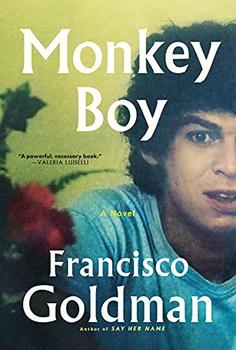Summary | Excerpt | Reading Guide | Reviews | Beyond the book | Read-Alikes | Genres & Themes | Author Bio

Homeland Elegies is a book of multiple worlds — not only the two worlds that make up Ayad Akhtar's heritage, Pakistan and America, but also the complex interior worlds of the many characters he portrays in this fictionalized autobiography. The surgical precision with which he dissects his subjects could be said to mirror the medical prowess of his father, a successful doctor who immigrated from Pakistan to the United States in the late 1960s. Stories of Akhtar's father serve as bookends for the work: In the opening pages, he is a buoyant Trump supporter infatuated with the American dream. By the end, he has become disillusioned. Much of what happens in between can be read as an explanation for his discontent, but to suggest that this is all Homeland Elegies is about would be an oversimplification — its scope is much more ambitious. Through stories of not only his father but many individuals, the author attempts to portray the American experience as a whole. Like a literary Cubist, he draws upon the perspectives of both insiders and outsiders, showing a panoptic vision that brings us closer to understanding the nation's true form.
One gets the sense that writing this book was a kind of therapy for Akhtar. It jumps backwards and forwards through time, yanking the reader from one to the next of his narratives like a puppet on a string. Stories link to other stories almost as if by free-association, taking us from suburban Abbottabad, Pakistan to the glamorous heights of a billionaire's New York — the billionaire in question being Riaz Rind, the complex and tenacious owner of a Wall Street hedge fund. Some moments have a startling intimacy so revealing that it almost feels intrusive to read them. This emotional honesty, along with the author's willingness to confront moral ambiguity, make possible a genuine empathy for the characters he portrays.
For much of the first part of the book, these characters are based on members of Akhtar's own family, whose lives are shaped by their relationship to Islam. Each family member has an anecdote about the ways that religion has impacted them — some good, some bad, all complex and multi-faceted. Everything, it seems, is a response to or a recoil from the demands of the competing religions that are the foundation of life for the American Muslim — American culture is an area in which Christianity prevails, despite claims of political secularism. Akhtar brings this reality into sharp relief, with all of its pain, richness, meaning and urgency. He illuminates the divisions sown in an America whose relationship with Islam has become incredibly antagonistic.
Throughout Homeland Elegies, personal history is intertwined with political history like a lattice. Each interaction Akhtar relays seems to be symbolic of a wider narrative about the state of national or global affairs. The relativity of truth is always at play; historical events are approached through multiple perspectives. His musings — astute, perceptive and at times provocative — are always portrayed as entirely subjective, just another opinion among many. The philosophical detachment with which he narrates events, interspersed with bouts of raw emotion, makes him a persuasive force.
Though telling stories of the past, Homeland Elegies ties itself to the present through the figure of Donald Trump. Trump looms throughout, an ominous specter in the book's peripheral vision, foreshadowing a future in which we all now live. The slow tracing of the movement towards this reality makes Trump's presidency seem, if not inevitable, then at least a natural consequence of America's increasingly mercantile, consumer-driven ideology. However, it is not Trump that Akhtar is interested in — rather, it is the casualties of the system that made his election possible. Compelling, penetrative and gorgeously written, Homeland Elegies looks with a clear vision into the heart of modern America — what it sees is both damning and all too familiar.
![]() This review was originally published in The BookBrowse Review in September 2020, and has been updated for the
June 2021 edition.
Click here to go to this issue.
This review was originally published in The BookBrowse Review in September 2020, and has been updated for the
June 2021 edition.
Click here to go to this issue.

If you liked Homeland Elegies, try these:

by Francisco Goldman
Published 2022
Francisco Goldman's first novel since his acclaimed, nationally bestselling Say Her Name (winner of the Prix Femina étranger), Monkey Boy is a sweeping story about the impact of divided identity - whether Jewish/Catholic, white/brown, native/expat - and one misfit's quest to heal his damaged past and find love.

by Jessica Goudeau
Published 2021
The story of two refugee families and their hope and resilience as they fight to survive and belong in America.
Dictators ride to and fro on tigers from which they dare not dismount. And the tigers are getting hungry.
Click Here to find out who said this, as well as discovering other famous literary quotes!
Your guide toexceptional books
BookBrowse seeks out and recommends the best in contemporary fiction and nonfiction—books that not only engage and entertain but also deepen our understanding of ourselves and the world around us.